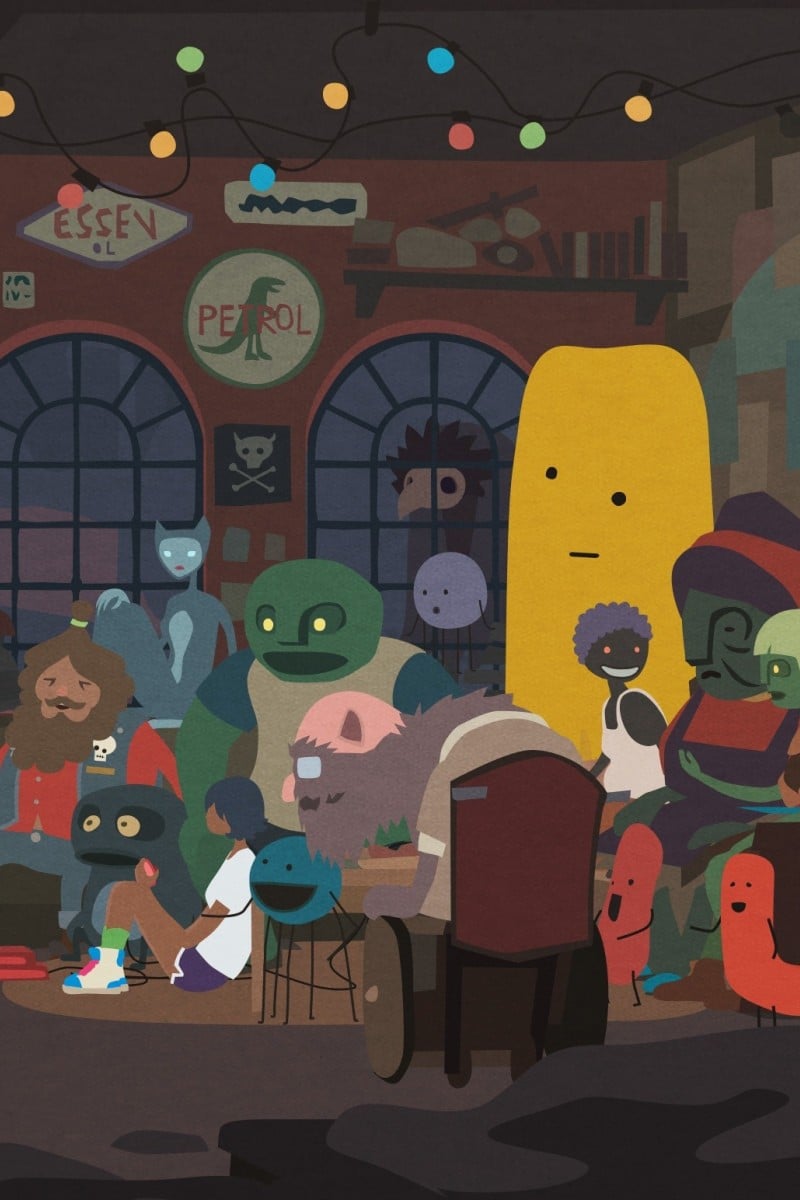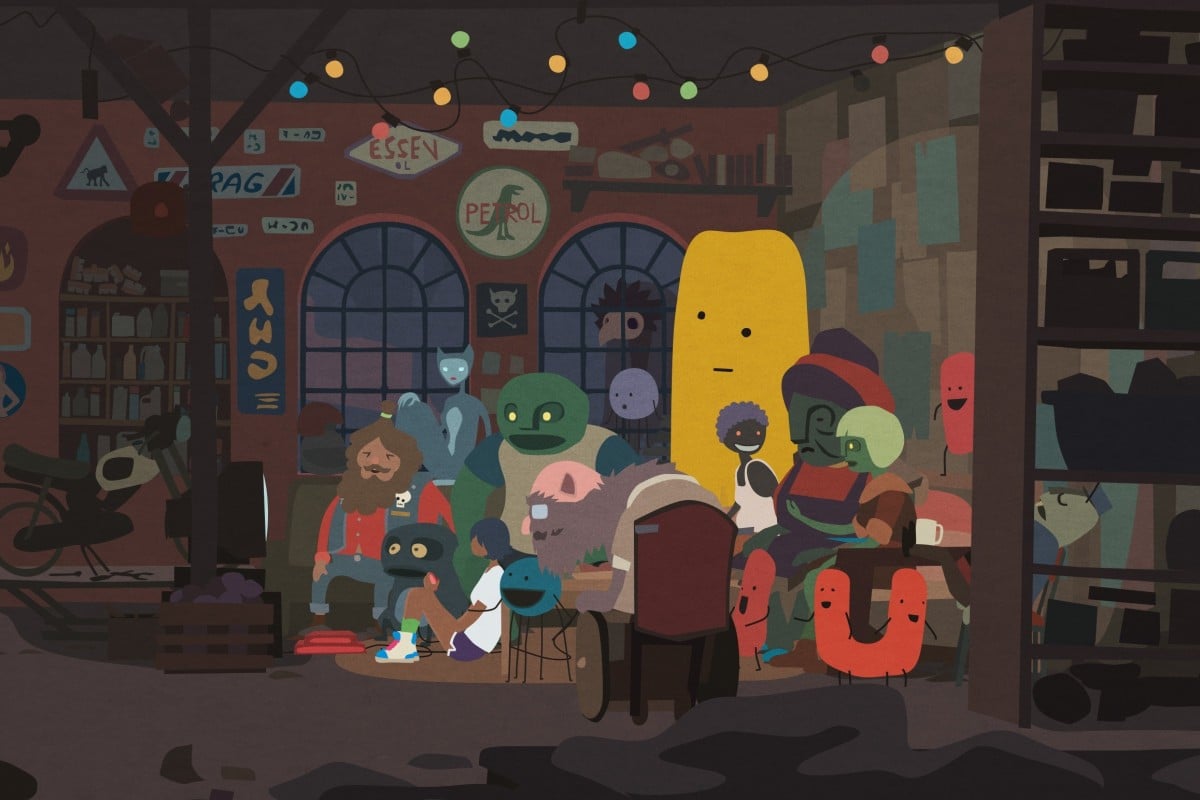
‘Mutazione’ game review: Discover harmony in nature as humanity becomes plant-loving mutants in the newest release by Die Gute Fabrik
While many video games find darkness in the end of the apocalypse, this adventure finds a ray of hope
 Mutazione is slow but meaningful, not a game to rush through.
Mutazione is slow but meaningful, not a game to rush through. Mutazione finds optimism in dire times.
You’ll meet a woman who has taken on catlike qualities, fungi that have grown into humanoids, a bird that serves as a town mystic, people whose toes have grown into claws and others whose heads have swelled to neon-green cantaloupes. There’s even a gelatinous character named Jell-A who seems like tree sap sprung to life. Jell-A looks like what might happen if you gave children a stick of butter and told them to make action figures out of it.
We play as Kai, a teenage girl who travels into this Jim Henson-inspired world of slightly twisted yet whimsical oddities. “Is it rude to comment on someone’s fur?” she wonders, as she lives separate from the mutated colony that has been shunted off from the rest of humanity and has never seen such wonders — or creepiness — before.
Mutazione is part of a small but burgeoning trend of games that shift away from post-apocalyptic violence and instead look for strands of hope in our climate crisis. Those who take a moment to invest the time in Mutazione — easy to do, thanks in part to a relaxed ambient soundtrack that intertwines itself with the sounds of nature — will find a game about nurturing the world, and learning to live in harmony with what we’re given.
Here, humans have evolved into other-worldly beings due to a climate-wrecking event, in this case a meteor crash — or a “moon dragon,” as the residents of Mutazione have taken to calling it.
This isn’t the dystopian end-of-the-world narrative in which humanity has either doomed nature or nature has exacted revenge on our habitat-destroying ways. Mostly, it’s simply a game about family and passing on traditions. Kai has gone to meet with and care for her dying grandfather, a scientist who jokes he’s more of a shaman in his old age.
There’s some mysticism here — see the aforementioned Jell-A — but Kai’s grandfather, Nonno, isn’t really a healer, per se; he’s simply discovered that plants grow more readily when given proper care and company, and sometimes a song. Playing music to gardens is the puzzle, as it were, at the core of “Mutazione.” These are prods to explore the colorful world and discover the plant seedlings that we too often overlook — or that earlier generations had bulldozed into roads (a library is full of never-eroding plastic mannequins and even a monorail, a mode of transportation that has no use in a world that’s been twisted so it can only accommodate treehouses and caves).
The pace of Mutazione is slow at its most loving. Though the full experience is likely to take around 10 hours, the first real quest, so to speak, won’t arrive until somewhere between 60 minutes and 90 minutes into the game. That’s just about perfect since you’ll want to spend some time simply exploring Mutazione’s weird, lush and soap-opera-filled landscapes.
There are a couple of different ways to play. You can talk to everyone and learn the game’s mysteries and discover inter-personal stories of unrequited crushes and unfulfilled dreams. Or you can rush through days gathering plant materials and playing music; various gardens require different songs, and bringing the world to life ultimately is what spreads happiness among its characters. It’s best to find the time to accommodate both, as this is a game about growth, personal and environmental, and learning that they’re all interconnected.
“I’m aware that might not sound immediately thrilling,” Nonno tells Kai early in the game, of his plant-rearing theories.
It’s meant for the player as much as her and serves as a self-referential ask on the part of the developers at Copenhagen-based Die Gute Fabrik to trust them. You should do so. While it shouldn’t take tending to digital gardens to remind us of the thrill of tending to real ones, such a reminder should be celebrated in whatever medium it arrives.